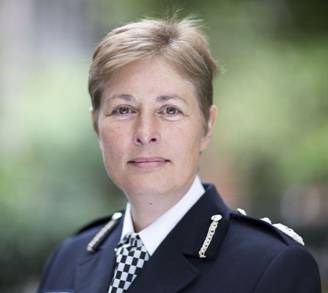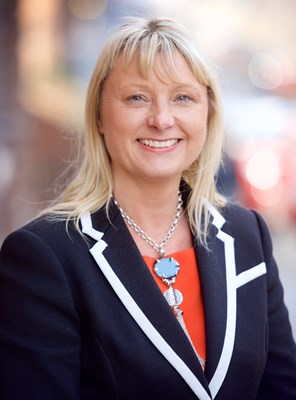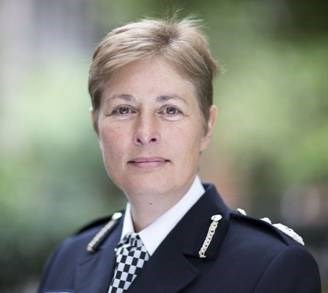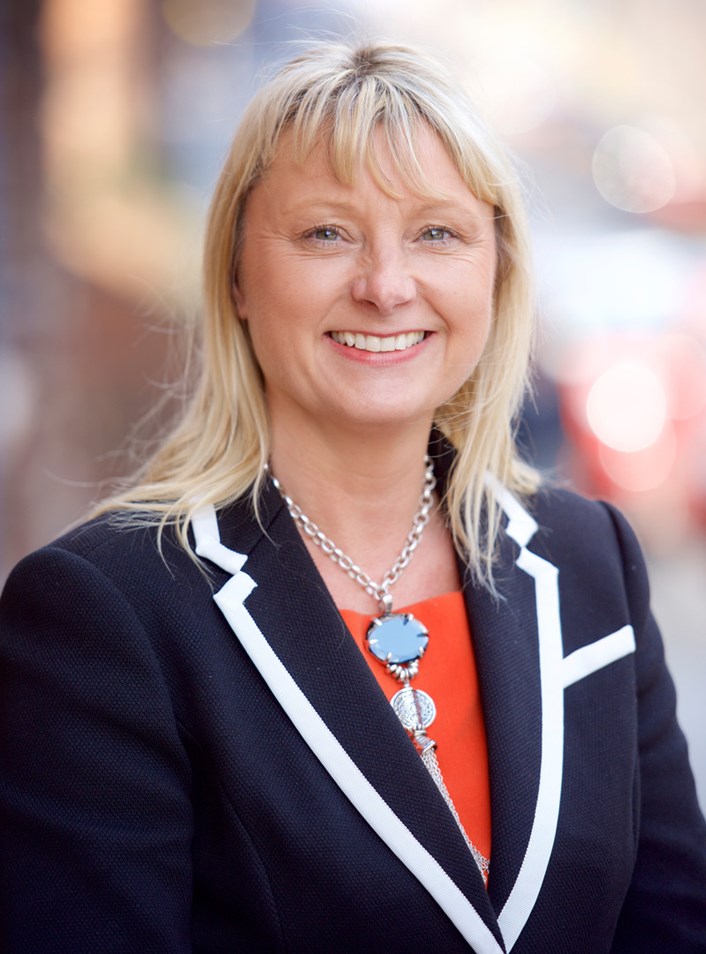08 Mar 2016
Police Chiefs Blogs: International Women's Day March 2016
To mark International Women’s Day, we’ve asked some of our chiefs about their roles, experiences of being a woman in policing and how they we can achieve further parity.
Despite budget reductions, the proportion of female police officers across 43 forces increased by nearly 6 per cent between 2006 and 2015. There are now over 35,000 female police officers making up 28 per cent of the workforce. Women hold over 40 of our top ranks, with eight female chief constables and two of the major national police organisations are led by women – Sara Thornton as Chair of the NPCC and Lynne Owens Director General of the National Crime Agency.
National Police Chiefs' Chair, Sara Thornton:
Tell us about your role and what you do on a day to day basis.
I’m the Chair of the organisation that gets chiefs to work together on a wide range of challenges – from organised crime to workforce issues. I work to a plan that has been agreed by chiefs and spend my time doing three main things:
- managing the coordination activity on which I lead directly and shaping the work of colleagues;
- working with stakeholders such as the Home Office, National Crime Agency (NCA), College of Policing, other parts of government;
- and representing policing which includes speeches, roundtables, workshops and visits
In 2015, we celebrated 100 years of women in policing. What have the most significant changes been for you?
For nearly ninety years modern policing did not include women. Since 1915, progress has been slow but we are now reaching a tipping point with the number of women and in particular more women in the most senior roles.
The theme this year is pledge for parity, what does that mean to you and your role?
We need to ensure that women feel encouraged to break all barriers in the service and that we all closely examine unconscious biases which may be holding ourselves or others back.
Are we doing enough to recruit more women into policing? What more can we do?
Recruitment of women has been a challenge because most forces have not been recruiting. But as this opens up I am confident that the mix will continue to change. The challenge is to ensure that women are equally represented in senior positions and specialisms.
Why is difference and diversity important in policing?
It is essential for legitimacy and effective performance.
Senior National Co-ordinator for Counter Terrorism, Deputy Assistant Commissioner, Helen Ball:
Tell us about your role and what you do on a day to day basis.
I have a national role, co-ordinating UK policing's counter terrorism and counter domestic extremism work. I work with the national CT policing network, police forces and MI5 to prevent attacks and to investigate those who might be involved in terrorism and domestic extremism.
In 2015, we celebrated 100 years of women in policing. What have the most significant changes been for you?
The increase in the numbers in women throughout policing has been wonderful, including the increase in senior and specialist roles.
The theme this year is pledge for parity, what does that mean to you and your role?
With other women in CT policing, I have created a video where we pledge to support and protect women who are victims of or affected by terrorism. This is hosted at www.preventtragedies.co.uk.
Are we doing enough to recruit more women into policing? What more can we do?
I think we are doing well in recruiting women into policing. I'd like to see us focus more on women from ethnic minorities, whose numbers are still small.
Why is difference and diversity important in policing?
I think what we all have in common is much more important than our differences - our common sense of vocation, our humanity and our values.
West Midlands Police, Assistant Chief Constable Michele Larmour:
Tell us about your role and what you do on a day to day basis.
I am an Assistant Chief Constable (ACC) for West Midlands Police with responsibility for local policing across the force area. As part of West Midlands Police programme of change for 2020, I lead on developing the next generation of local policing, involving citizens in policing in their area and communicating with our communities digitally as well as through more traditional methods. As well as my work within the force, I lead for our region on mental health issues and fast track officer development schemes.
In 2015, we celebrated 100 years of women in policing. What have the most significant changes been for you?
The most significant change for me in 2015 was in deciding to take my new role as an ACC. It has meant a change in rank and responsibility as well as moving force and adapting to a different policing environment as I previously worked in Northern Ireland. My husband and family still live in Northern Ireland so I am also adapting to the commute and change in lifestyle that brings. Working as an ACC in West Midlands Police offers an exciting opportunity for me to share and broaden my policing experience.
The theme this year is pledge for parity, what does that mean to you and your role?
For me, this is about equal opportunity, recognition and encouragement. That’s not just female diversity but welcoming diversity across the board in terms race, religion, background and sexual orientation, as well as differences in personality, ways of working and thinking. Policing is still male dominated so support from male colleagues and their influence is vitally important to female progression throughout the service. Role models, agile working and creating opportunities to allocate females into challenging risk related areas of the business in order to develop their skills and prepare them for stepping into more senior roles are all important in achieving parity in the workplace.
In my role, parity is about creating fair and equitable opportunity for all individuals to reach their full potential. This involves encouraging lateral as well as hierarchical progression and inspiring different individuals to contribute to policing and leadership. I mentor, coach and share my experiences both in my day to day work and through specific events - I spoke at the West Midlands Association for Women in Policing (WMAWP) 100 year celebration in 2015 and I talked to prospective chief officers at the Strategic Command Course this year.
Are we doing enough to recruit more women into policing? What more can we do?
The consistent increase of women in policing is significant yet statistics on diversity show us that we need to do more to be truly reflective of the communities we serve.
I think we need to ask the question of whether we are an employer of choice? Flexible working happens but isn’t fully part of our culture in policing yet; increasing flexibility may help us attract and retain women, especially as we know that with an aging population the number of people balancing work with caring responsibilities will increase.
Support networks, recognition and representation in all disciplines across policing will assist. Changes in the workforce mix and IT developments will create additional opportunities to deliver policing services differently.
Why is difference and diversity important in policing?
FTSE companies acknowledge that people with a broad range of characteristics perform more effectively than those who are similar. Diversity brings a greater range of skills and knowledge that we can use to solve problems and improve our service to a range of different communities and situations. It is also central to our legitimacy; we need to be representative of the people we police so we can build and maintain their trust and confidence.
Contact information
Communications office
By phone: 0800 538 5058
By email: press.office@npcc.police.uk




